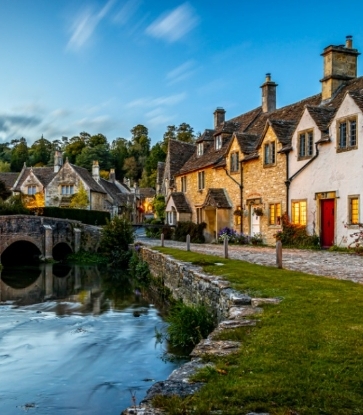In celebration of Earth Day, the MICHELIN Guide spoke with Green Star chefs about the practices they employ in combating climate change and food waste. Our series of interviews, released each Wednesday in April, highlight how chefs are taking measures to educate and inspire diners on making better choices in their daily lives.
With over 119 billion pounds of food wasted in the United States annually according to non-profit Feeding America, the need for innovative solutions is imminent. From no-choice menus sourced locally, to the world’s first zero-waste restaurant, it's clear the future of the culinary world is headed toward greener pastures. And for these restaurants, the future is now.
“Our commitment to sustainability is not just about creating delicious meals, but also about being responsible and mindful stewards of the planet and its resources,” explains chef Massimo Falsini of One Star and Green Star Caruso's in Montecito, California. Honey is produced through an in-house apiary, the Garde Manger program is supported by their vegetable garden, and 90% of the seafood come from sustainable sources. For Falsini, it's about nourishing ourselves with the best and doing the same for the planet and culinary eco-system. “The benefits are enormous, and taking care of [the bees and our produce] does so much to the soul of a chef," says Falsini. "It's like going to the spa.”
And while Falsini may be using cucumber slices in dishes rather than on his eyes, his commitment is more than skin deep. “Our oceans are the source of life for the entire planet," he explains. "They are the most important resource for us and must be preserved and respected to guarantee prosperity to our future generations.” In supporting local suppliers, chef Falsini ensures Caruso’s carbon footprint and impact on the health of marine life is limited and that all practices are ethical and responsible.

The resulting menu changes based on the availability of ingredients. “It’s alive," exclaims chef Falsini. "It's dynamic with constant changes, tweaks, and adjustments.” However, it does come with certain challenges or opportunities, all of which Falsini handles with aplomb. “At times we have ingredients that are available for a couple of weeks or even a one-off from a micro farm. We always take the opportunity to find room in our dishes.”
Beyond the kitchen, chef Falsini and his family continue championing sustainable practices. They compost for their Calistoga neighborhood, drive electric vehicles, ban single-use plastics, and check out sources before shopping. Even Falsini's kids got the green thumb early, working at their Montessori school's farm.

However, it's his menu and the constant change of ingredients that yields the most creative (and environmentally conscientious) dishes. “Our choices and practices have a significant impact on the environment,” says Falsini. “By adopting sustainable practices, we reduce our environmental impact and contribute to a more sustainable future.”




















